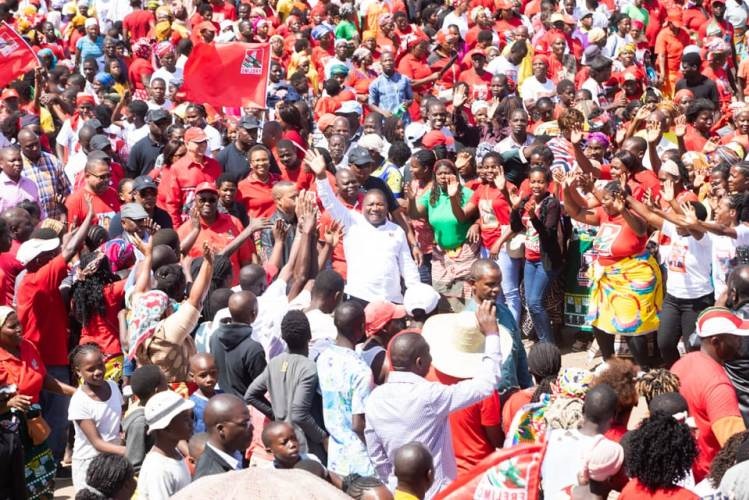 Mozambican President Filipe Nyusi declared on Sunday that, if
he is elected to a second five year term of office, he wants to reform the
country’s judicial system. Speaking at a meeting in Maputo with academics from
various higher education institutions, he said he wanted to undertake a broad
reform, reformulating the civil, penal and administrative legal codes, as well
as the statute of magistrates to improve their pay and working conditions. He
also wants to transform the Constitutional Council into a Constitutional Court.
This, however, would just be a change of name to reflect the reality. The
Constitutional Council already operates as the highest court in the land in
matters of constitutional and electoral law, and its member are called judges.Nyusi
wanted to see more importance granted to extra-judicial means of solving
disputes, such as mediation and arbitration. Other areas to be considered
include how magistrates are appointed, and the system of legal costs. The
purpose, he stressed, is to make justice “quick, efficient and effective”.
Mozambican President Filipe Nyusi declared on Sunday that, if
he is elected to a second five year term of office, he wants to reform the
country’s judicial system. Speaking at a meeting in Maputo with academics from
various higher education institutions, he said he wanted to undertake a broad
reform, reformulating the civil, penal and administrative legal codes, as well
as the statute of magistrates to improve their pay and working conditions. He
also wants to transform the Constitutional Council into a Constitutional Court.
This, however, would just be a change of name to reflect the reality. The
Constitutional Council already operates as the highest court in the land in
matters of constitutional and electoral law, and its member are called judges.Nyusi
wanted to see more importance granted to extra-judicial means of solving
disputes, such as mediation and arbitration. Other areas to be considered
include how magistrates are appointed, and the system of legal costs. The
purpose, he stressed, is to make justice “quick, efficient and effective”.“We must have the same courage that dictated we work on decentralisation, in order to reform the justice system”, Nyusi said.Looking back over the period since he took office in January 2015, Nyusi said he had been aware “of the structural challenges facing us. The country was very nervous”.When he was sworn in, he continued, he was aware that “systematic corruption” existed in all sectors, and had to be fought. The government also faced “politico-military tension” with the militia of the former rebel movement Renamo. On top of this came the crisis of Mozambique’s “hidden debts”, which led to Mozambique’s cooperation partners suspending the direct support they had been providing to the state budget.
“The withdrawal of support by the cooperation partners
because of the debts that you all know about is real”, Nyusi said. “This can’t
be rejected, it’s a reality. Debts appeared that had not been approved by the
Assembly of the Republic (the Mozambican parliament) and at that exact moment
they blocked the system. We couldn’t make investments, even if we had the
capacity, because we weren’t credible”. Faced with this situation, he said, he
had met personally with international partners to explain the situation and how
the government intended to cope.
“I went to New York, I knocked on all the doors, with the World Bank and others”, he continued. “I went there to say that we are going to sit down and deal with the situation. We cannot sacrifice a country”. As for corruption, Nyusi admitted that it exists in state bodies, in churches, in political parties, in public and private sectors. If corruption us being talked about more today, than in the past, that is because there is a fight under way against it.
“The numbers are increasing, because we are going after the corrupt”, he said.
“I went to New York, I knocked on all the doors, with the World Bank and others”, he continued. “I went there to say that we are going to sit down and deal with the situation. We cannot sacrifice a country”. As for corruption, Nyusi admitted that it exists in state bodies, in churches, in political parties, in public and private sectors. If corruption us being talked about more today, than in the past, that is because there is a fight under way against it.
“The numbers are increasing, because we are going after the corrupt”, he said.

0 comentários:
Post a Comment